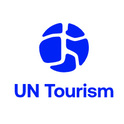UNWTO Delegation Observes Safe Restart Of Tourism In Egypt On Official Visit
A high-level delegation from the World Tourism Organization (UNWTO) has concluded an official visit to Egypt to offer firm support for the government's work to restart tourism and direct its benefits towards supporting livelihoods and preserving cultural heritage.
As the United Nations released its landmark Policy Brief on COVID-19 and Transforming Tourism, with Secretary-General Antonio Guterres outlining his Five Priorities for rebuilding the sector, UNWTO visited Egypt to help guide the implementation of these key recommendations. Led by the UNWTO Secretary-General Zurab Pololikashvili, the delegation met with President Abdel Fattah El Sisi and the Minister of Tourism and Antiquities Dr. Khaled Al-Anani to learn of the steps taken to support tourism, including through the merging of the ministries of antiquities and tourism and the provision of grants and incentives to the sector. Mr Pololikashvili also met with Prime Minister Moustafa Madbouly to learn more of work being undertaken to boost consumer confidence and guarantee the safety of both tourism workers and tourists.
Tourism adapting to new reality
The high-level talks, which also featured an update on large-scale tourism projects currently underway, including the new Grand Egyptian Museum and the National Museum of Egyptian Civilization, were complemented by visits to several of Egypt's most popular tourist sites. This allowed the UNWTO delegation to see first-hand the enhanced safety and hygiene protocols put in place in response as the sector adjusts a new reality within the context of the COVID-19 pandemic.
UNWTO Secretary-General Zurab Pololikashvili said: "The safe restart of tourism is not only possible, it is essential. The United Nations has made clear the importance of tourism for everything from employment to equality, making it an integral part of sustainable development. Egypt, as one of the world's leading tourist destinations, has supported the sector with firm actions, including effective fiscal and economic policies. It is now ready to welcome tourists back to its many sites of interest, all the while putting people and their wellbeing first."
Private sector and institutional partnerships
Alongside meeting with the Egyptian government, the UNWTO Secretary-General also met with the Egyptian Tourism Federation and the Federation of Tourist Chambers. Both outlined the measures being taken to adapt safety protocols in tourist accommodation and other key services to the new reality. Visits to the world-famous Pyramids, the National Museum for Egyptian Civilization and to one of the country's top marine tourism destinations likewise provided a broad overview of the joined-up approach to the safe and responsible restart of tourism.
The visit to Egypt came as UNWTO and the European Bank for Reconstruction and Development (EBRD) work together to provide help guide and accelerate the recovery of tourism in the country. Egypt is one of a first group of 13 countries that will benefit from expert technical support as the two organizations build on their existing partnership to support tourism as it recovers from the devastating impacts of the COVID-19 pandemic.
The joint initiative will see the tourism sectors of all 38 economies where the Bank invests benefit from expert technical support, allowing them to introduce new safety and hygiene protocols and so boost confidence and revive demand.
About UN Tourism
The World Tourism Organization (UN Tourism) is the United Nations agency responsible for the promotion of responsible, sustainable and universally accessible tourism.
As the leading international organization in the field of tourism, UN Tourism promotes tourism as a driver of economic growth, inclusive development and environmental sustainability and offers leadership and support to the sector in advancing knowledge and tourism policies worldwide.
Our Priorities
Mainstreaming tourism in the global agenda: Advocating the value of tourism as a driver of socio-economic growth and development, its inclusion as a priority in national and international policies and the need to create a level playing field for the sector to develop and prosper.
Promoting sustainable tourism development: Supporting sustainable tourism policies and practices: policies which make optimal use of environmental resources, respect the socio-cultural authenticity of host communities and provide socio-economic benefits for all.
Fostering knowledge, education and capacity building: Supporting countries to assess and address their needs in education and training, as well as providing networks for knowledge creation and exchange.
Improving tourism competitiveness: Improving UN Tourism Members' competitiveness through knowledge creation and exchange, human resources development and the promotion of excellence in areas such as policy planning, statistics and market trends, sustainable tourism development, marketing and promotion, product development and risk and crisis management.
Advancing tourism's contribution to poverty reduction and development: Maximizing the contribution of tourism to poverty reduction and achieving the SDGs by making tourism work as a tool for development and promoting the inclusion of tourism in the development agenda.
Building partnerships: Engaging with the private sector, regional and local tourism organizations, academia and research institutions, civil society and the UN system to build a more sustainable, responsible and competitive tourism sector.
Our Structure
Members: An intergovernmental organization, UN Tourism has 160 Member States, 6 Associate Members, 2 Observers and over 500 Affiliate Members.
Organs: The General Assembly is the supreme organ of the Organization. The Executive Council take all measures, in consultation with the Secretary-General, for the implementation of the decisions and recommendations of the General Assembly and reports to the Assembly.
Secretariat: UN Tourism headquarters are based in Madrid, Spain. The Secretariat is led by the Secretary-General and organized into departments covering issues such as sustainability, education, tourism trends and marketing, sustainable development, statistics and the Tourism Satellite Account (TSA), destination management, ethics and risk and crisis management. The Technical Cooperation and Silk Road Department carries out development projects in over 100 countries worldwide, while the Regional Departments for Africa, the Americas, Asia and the Pacific, Europe and the Middle East serve as the link between UN Tourism and its 160 Member States. The Affiliate Members Department represents UN Tourism's 500 plus Affiliate members.
UN Tourism Communications Department
+34 91 567 8100
UN Tourism
